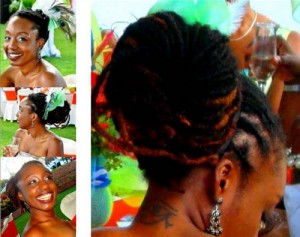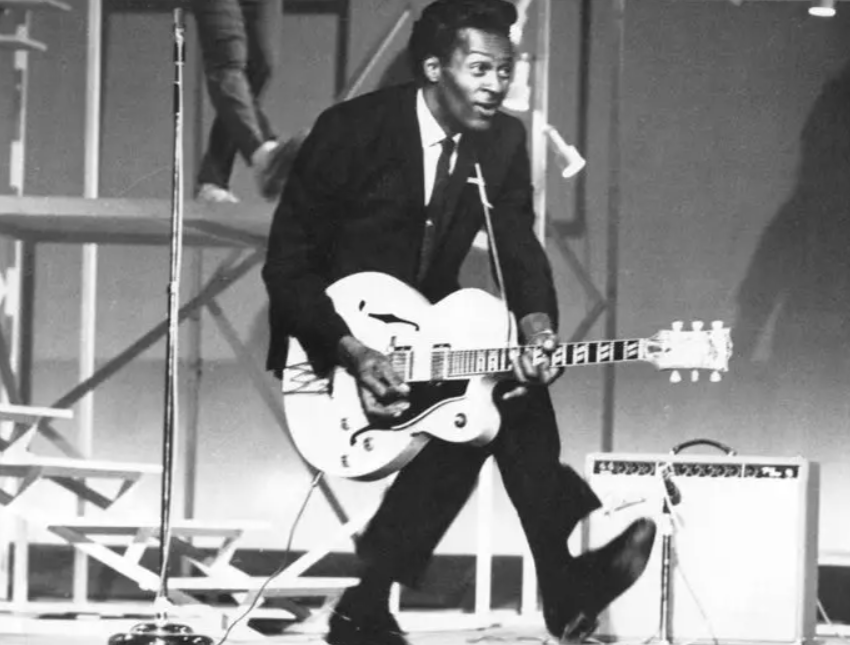(ThyBlackMan.com) I am writing this for Tiana Parker. It is addressed to all the older black women currently shaping her life and the lives of many black girls.
I was raised for a time by my grandmother, so I have a deep respect and love for older women. I want my female elders to know this upfront or you might mistake me for being an impertinent, wayward child with a mouth way too big for her own good. There are many things I learned from my female elders and continue to learn that has opened doors to love, hope, dignity and spiritual enlightenment and I am grateful for this.
However, you have both light and dark wrestling within you just like me and everyone else. Sometimes when we sincerely believe we are helping we are also harming. Mothers, tanties and teachers it breaks my heart to tell you this but you unknowingly slipped something toxic in your home-cooked chicken soup for the soul and fed it to your daughters and granddaughters.
You told us that in order to enter woman-hood and embrace all the beauty that comes with it, we must undergo a painful rite of passage called the chemical relaxer, perm or hot comb.
You said the reason why we had have toxic chemicals plastered into our hair was because there was something fundamentally wrong with it. As if we couldn’t already tell by the way you complained and cursed as you angrily tended it like a stubborn underbrush of thorns. You know how easily children blame themselves even when it is not their fault. Imagine being constantly told it is your fault. You have a physical feature you did not choose to be born with but was a source of aggravation to the one you loved most.
This really hurt us badly.
I know that it was not your intention to do that and I forgive you wholeheartedly.
I can forgive because I can see though your eyes. You were frustrated from dealing with so many burdens — a job you hate, financial worries, marriage problems, endless housework, difficult relatives stressing you out and crab in barrel drama in the community. Then like the last straw to break the camel’s back comes this great, big, mass of spongy/curly/wooly chaos that you have to make look presentable or be judged and humiliated as a bad mother to “low-class, n**ger family“.
Multiply that pressure by a factor of infinity when it came to looking presentable in the eyes of those that held the key to your family rising out of the disadvantage and despair of poverty. They made it clear to you that your hair like everything else about you it had to be Europeanized before you could “pass“. In its natural state it was an ugly manifestation of your uncivilized nature.
To tell the truth, it truly looked the part, for our ancestors had lost many of the ethnic hairstyles that kept black hair in stylish shape.
Distinctive locks, braids, twists, beading, weaving, accessorizing were shorn before the Middle Passage voyage. Such hairstyles were also strongly discouraged by colonials who did not want any tribal identification going on and wanted to homogenize us to just “black” instead of Ashanti, Yoruban, Igbo etc. It was only when we lost our indigenous approach to hair that our hair became an inconvenient chore. We were forced to groom black hair as if it were something other than what it was.
The truth is we are actually blessed with one of the most naturally hassle-free hair-types on the planet. It does not quickly accumulate oils and dirt. It actually over-dries and breaks from being washed too often. Lice hate our hair-type. It was made to withstand very harsh and humid weather. Yes, it does take time and patience to comb, braid and plait but then it can be left alone for at least a week, perhaps longer depending on the style.
Back in ancestral times, our hair-styling routine would be a time of social bonding, sometimes coinciding with our “moon-time.” We would be gathered in a circle with a fire-roaring, perhaps some herbal refreshment on hand. Hair tools lovingly carved from wood, bone, ivory and meticulously produced pigments, oils, perfumes would be on hand. We took turns expressing our artistry on each-other’s hair, with love and pride as we bonded over stories and sang songs. It was a time of inter generational passing of wisdom and spiritual comfort.
Today the bonding rite of passage into womanhood for most of us involves gritting our teeth in pain as our scalp sizzles away and grossing out at the pus leaking from the chemical wounds afterwards. Our naturally bouncy, healthy, playful puffball is transformed into a lifeless, brittle and tortured mass of straw that needs to be resuscitated with oils, deep conditioners, gels, mousses and hot irons. Like the wicked witch of Oz, we avoid water, running from every drizzle or chance to dive in the pool. Our hair becomes like an expensive and elaborate domino chain. One touch and its ruined! When lovers try to grab the “reins” to keep steady while bucking, their mood is instantly killed with, “Don’t mess up my hair!” For some of us it does not matter if we are obese or at risk for diabetes or our teeth are rotting out of our mouth or we can barely give a coherent testimony in court, just as long as our hair is did.
We started breaking out of this mentality in the 1970s. Braids with multicolored beads appeared and so did the mighty Afro. Then out of Jamaica came the Rastafarian Movement…wait hear me out. I know you don’t like the big, ungainly, matted-up dreads but dreadlocks can be everything from one big ant-hill to many, perfectly formed, clean and conditioned locks flowing like spaghetti that can hang loose, in a ponytail or be swept up in an elegant bun or twist. That’s me at Her Excellency, The Governor General of Saint Lucia, Dame Pearlette Louisey’s Ladies In Hats Fundraiser for The Upton Girls Garden Center for Abused Girls. Cheers!
My female elders, we are trying once again to love ourselves, in a way that honors the beautiful diversity with which nature has gifted us. I respect that your painful relaxing routine and wig wearing was what got your foot in the door. Times are slowly changing, perhaps not to the greatest extent Dr. King had in mind but enough that I a black woman with dreadlocks, once stood in front the executive board of RBTT/RBC, presented a corporate campaign and helped my agency steal take their multi-million dollar account away from the incumbent and that’s not even anything special in comparison to some of the stellar achievements of a growing number of natural-hair/dreadlock wearing black people. I’m talking Oscars, Pulitzers, professorial tenures at Ivy League schools, parliamentary and decorated military service.
“If we think we cannot be accepted by someone unless we act just like them, we will never be truly respected even if and when they do decide to accept us.” My Granny told me that.
She would say, “Jessie girl, come, let me do your hair,” and I would happily and run and get the cushion and lay it on the ground, between her knees. What?! A girl eager to get her Buckwheat/Chaka Khan-hybrid jungle combed? Yes! You see my granny was a Nappy-Roots Whisperer. She used to make home-made pomades with cocoa butter, bees wax, olive, coconut and scented oils. I loved the smell of her “hair-grease.” Every-time she opened the jar I had to take a sniff. No two batches were exactly alike. She had a gentle way of combing through hair you hardly felt anything at all save a pleasant, soothing, tugging. With tingly ease she would run parts through the dense forest. Next there would be the blissful sensation of her grease slicked fingers rubbing into my scalp, while she hummed her hymns. I would just go into a hypnotic state, my imagination floating off to far-away lands. By the time I returned from my journey, my hair would be combed into pretty plaits down to my shoulders ending in a little clip or bubble.
Now, once a week, I wash my hair, condition my scalp, let air dry and then I curl up on the coach with a glass of wine and my favorite organic locking gel and languidly twist my roots and rub essential scented oils into my dreads. It takes about the length of two episodes of BBC’s Luther or Sherlock. During those moments, I often think of Granny and miss her so much.
All black female elders, teachers, head nurses, pastor’s wives, supervisors, school administrators, neighbors, sisters, aunts, mothers and grandmothers, I am not asking you to stop relaxing your own hair. Your body is your right. However, I am asking you, allow this emerging generation our chance to love our natural hair without discouraging and penalizing us.
The next generation will thank you for it.
Written By Jessica Joseph




















At 35 years old, I made a healthy change that I had been contemplating for over 18 years. I committed the big chop, and two months later I installed micro braids, wore them for 7 months. When I removed the micro braids, I went straight into micro inter-locs. Eventhough I wanted to be natural for the longest, I feared the backlash from my co-teachers and principal. One Saturday afternoon, after washing my hair, I looked in the mirror to see my naked scalp smiling back at me. I was rocked to the core. I called my nine year old over to verify what I just saw. It was true. I had permed all of my hair right off of my hair. of course, that was not my objective. I simply wanted to straighten my new growth so that I can attach a fake bun onto my hair, slick it down and look as conservative/acceptable as possible. That practice didn’t make me happy, and I definetly didn’t feel free, or empowered. Straightening my hair only made me feel oppressed and like a wanna be. I am not an extremist, but I know right from wrong.
Almost two years later, I am so happy with my micro locs. I spark conversation about natural hair care with strangers where ever I go. Even my boss is natural and inquisitive about my locs. My students cheer me on, some think that Im a radical, others think that Im just like their parents. I welcome it all. Now it is my mission to not change other black women, but at least make them recognize the serious health risk associated with chemically straightening their hair.
I know that we have become accustomed to straight hair, heck, I flat iron my locs from time to time. But a perm or a relaxer, not again in this lifetime.
I converted to locs 12 years ago due to the continued assualt which my hair would break off, braided way too tight, and hit in the head with hot combs for not sitting still while the grease popped on my scalp. I have also been the weave route it felt like a hat on top of my head; poney tail the pins eventually put a hole in my scalp. I tried to wear it natural and was taunted. Now today as a 57-year-old female, people still say I wonder what you would like with straight hair. My new response is going to be what would you look like with my hair? Learning how to love myself and be prou.